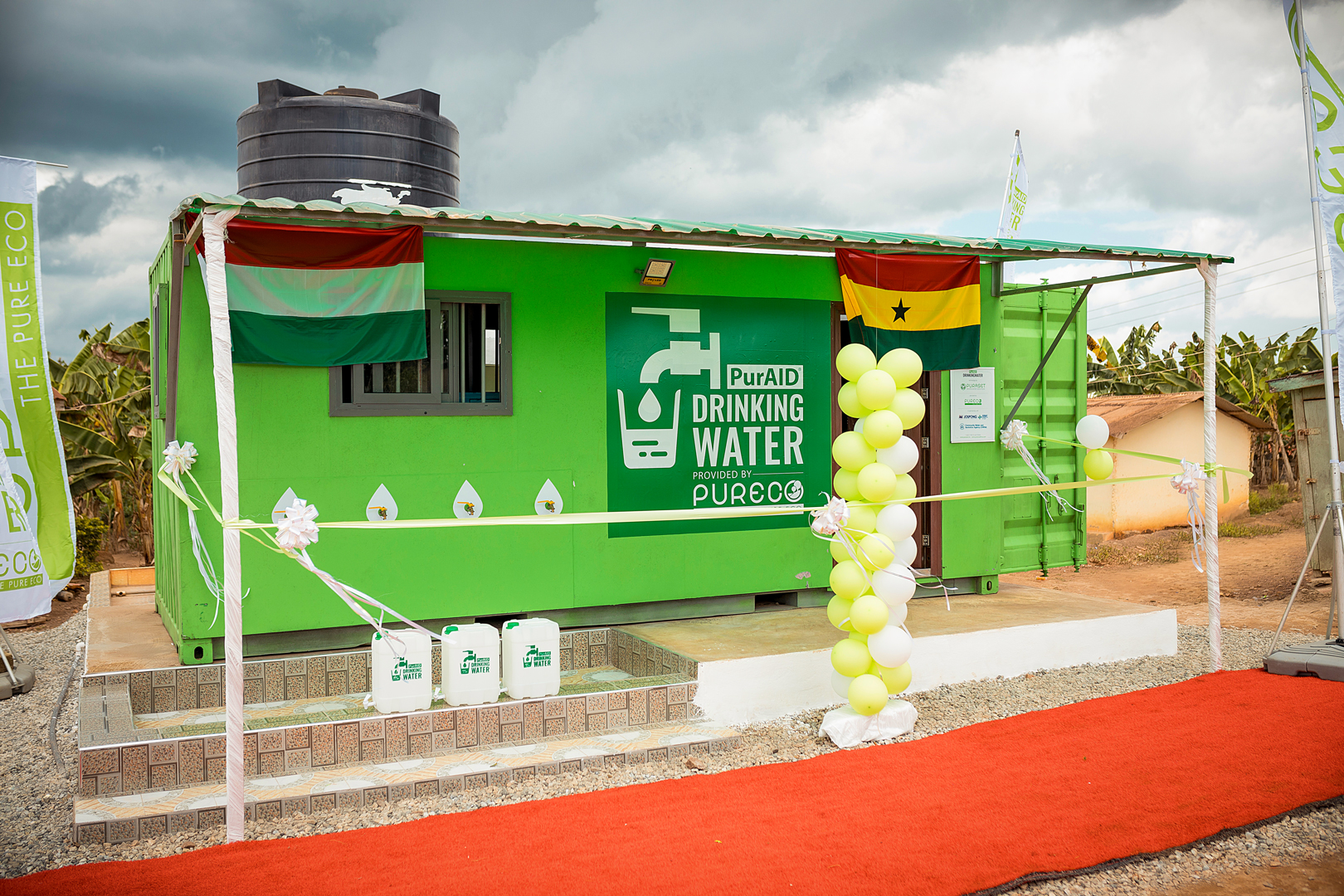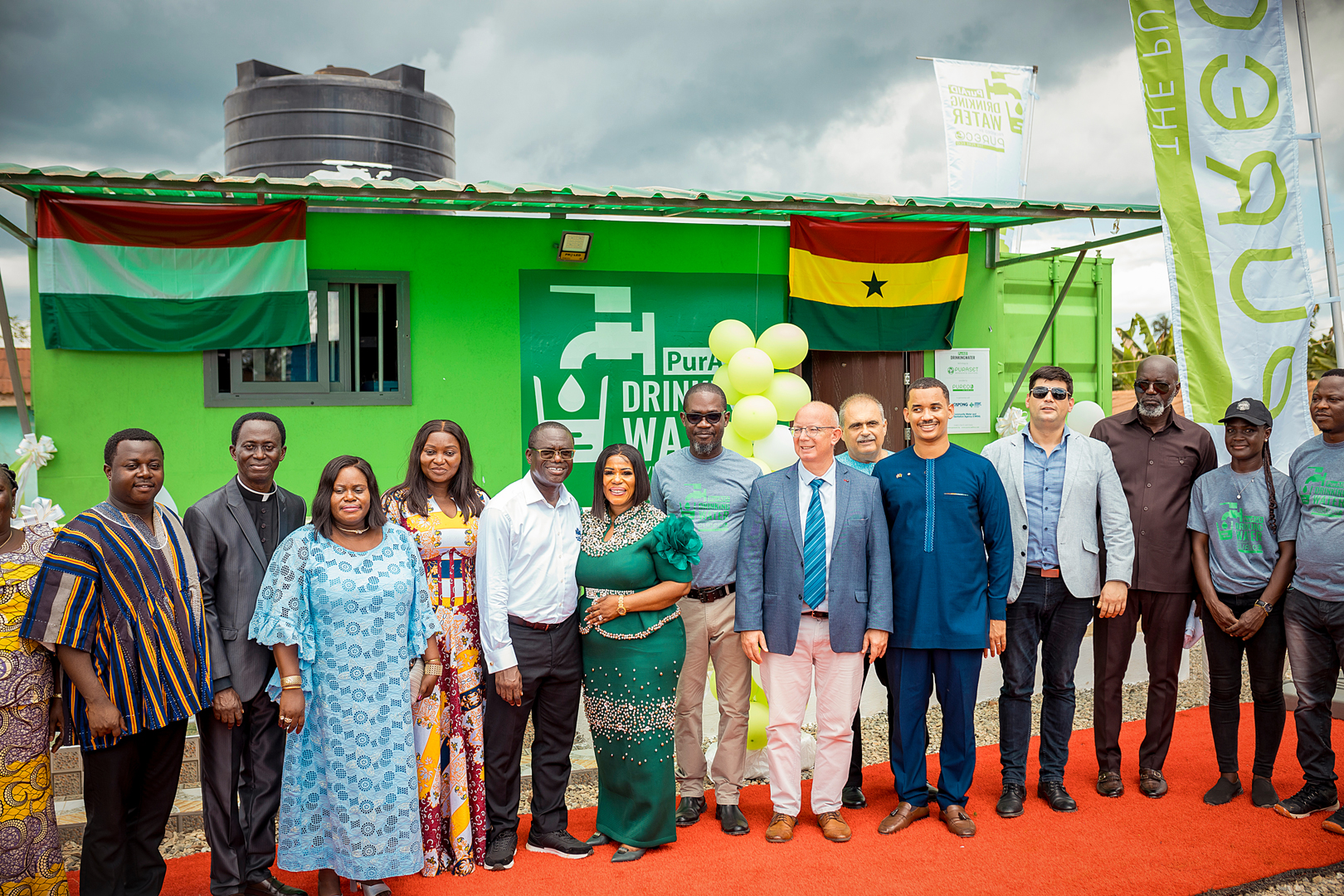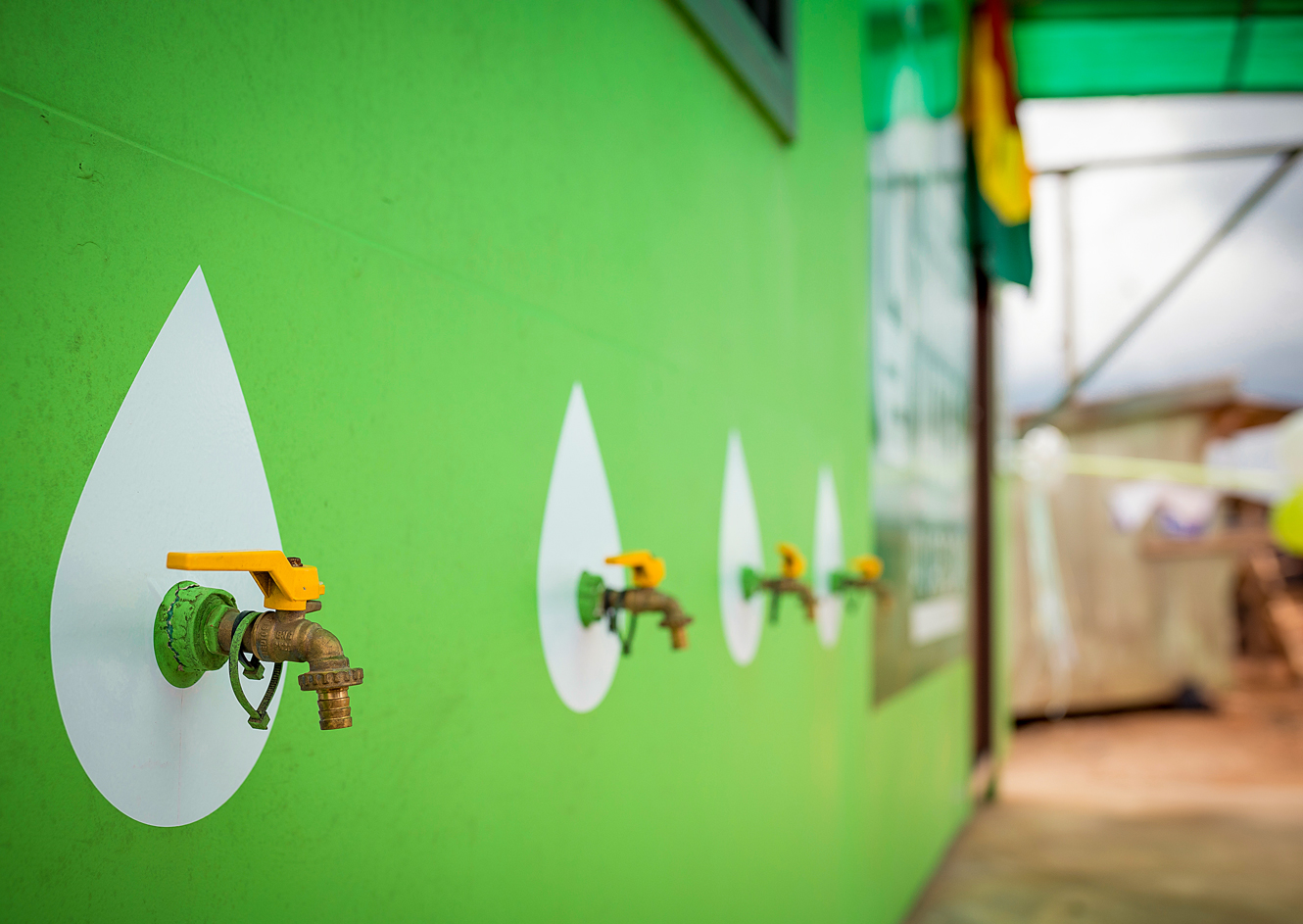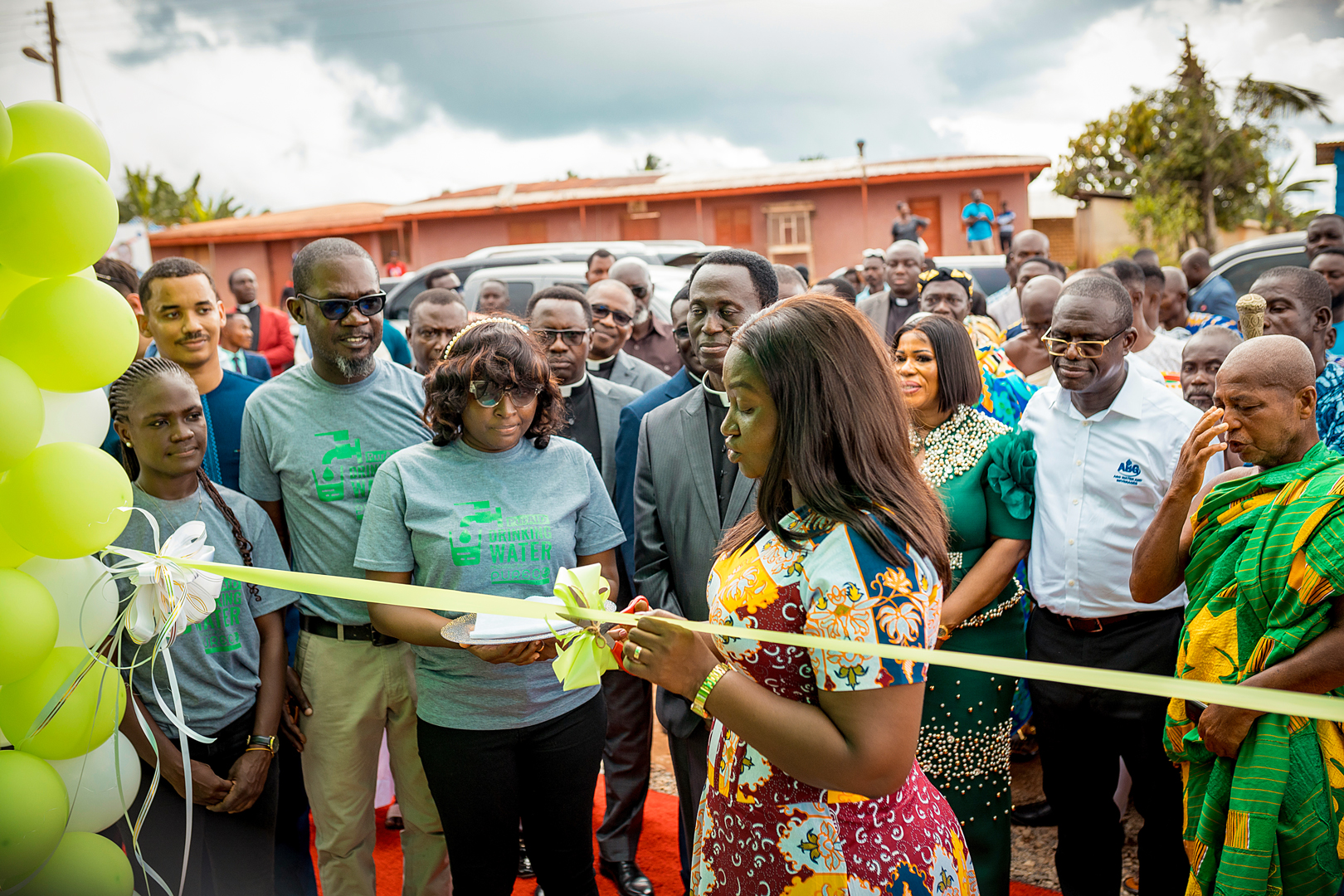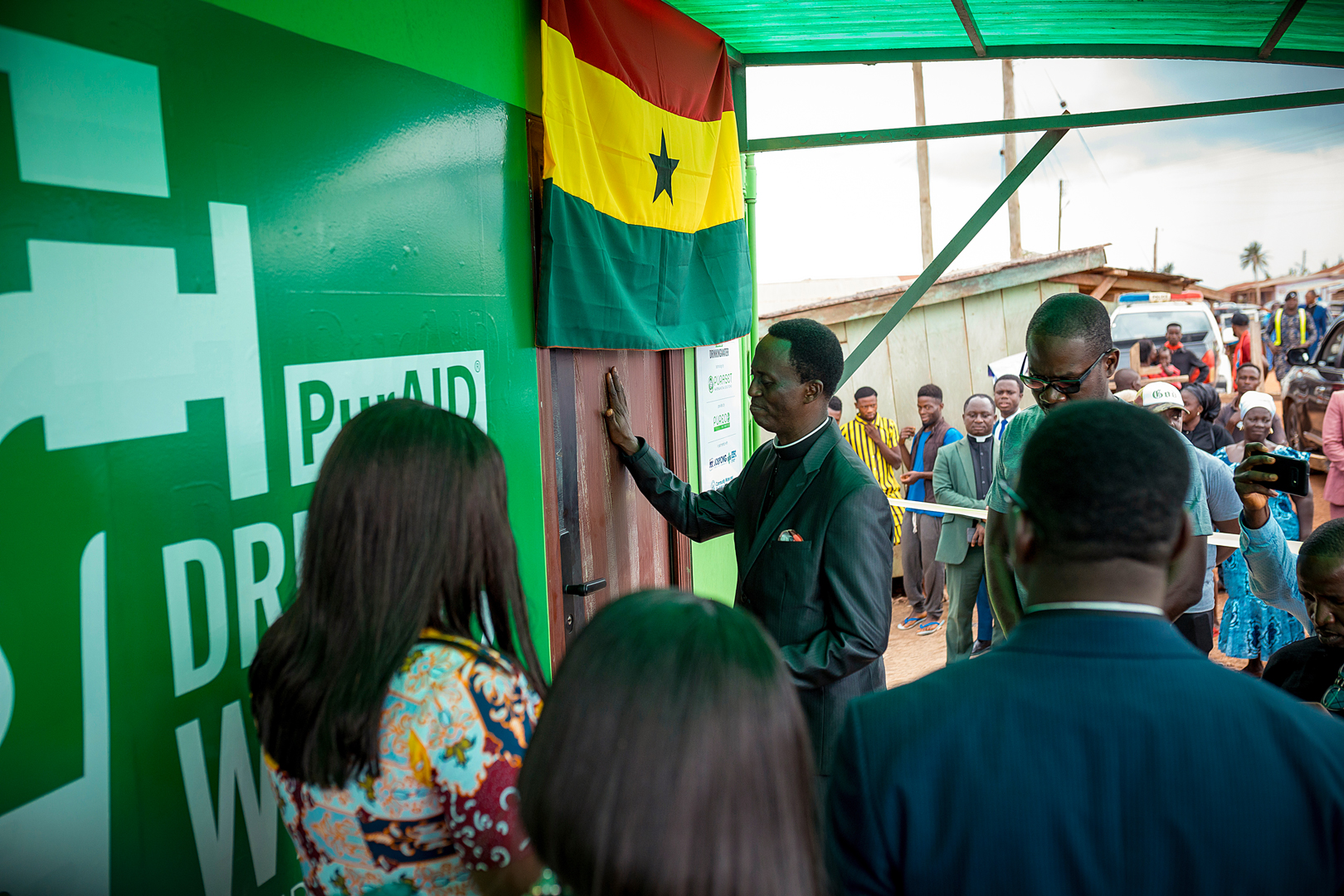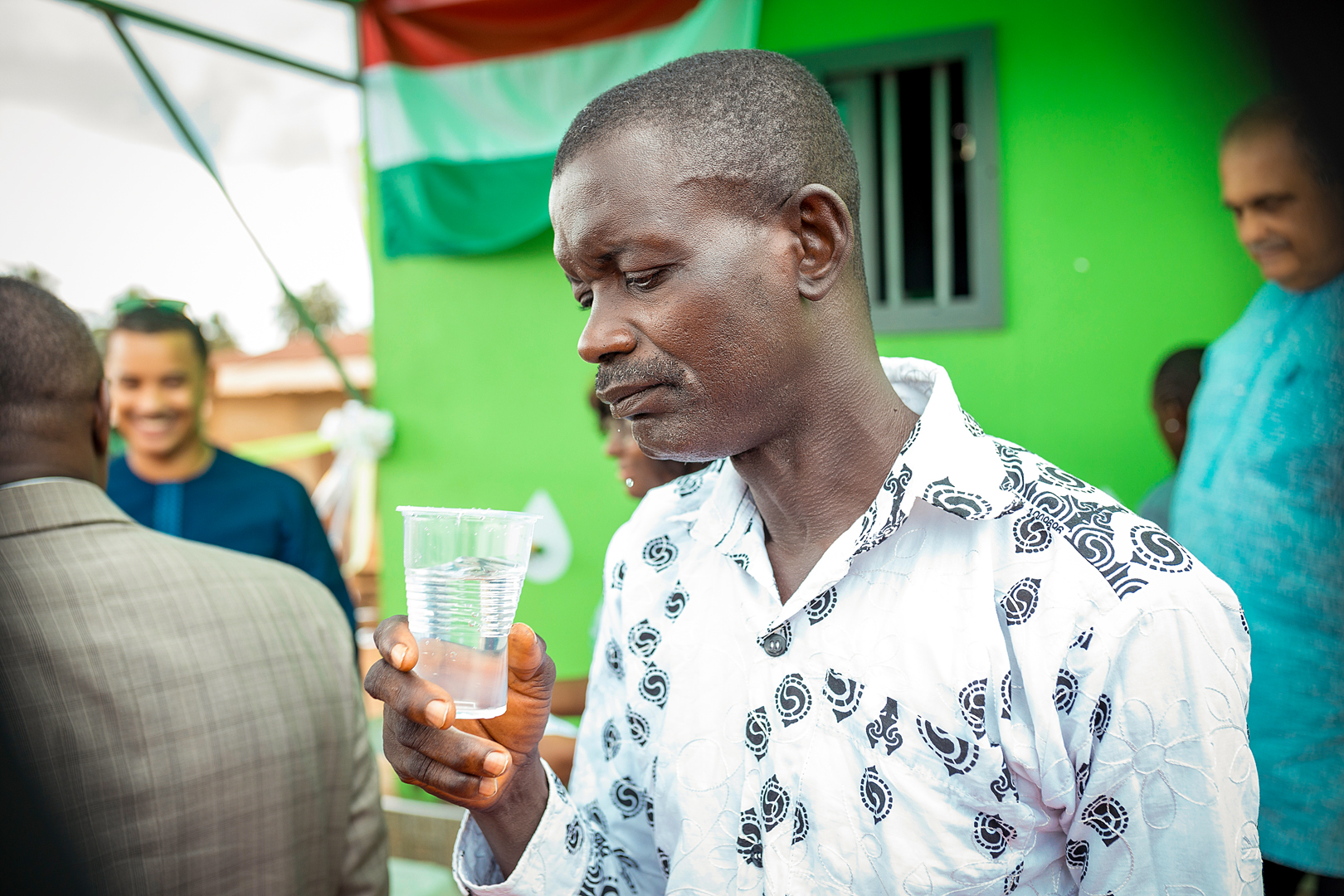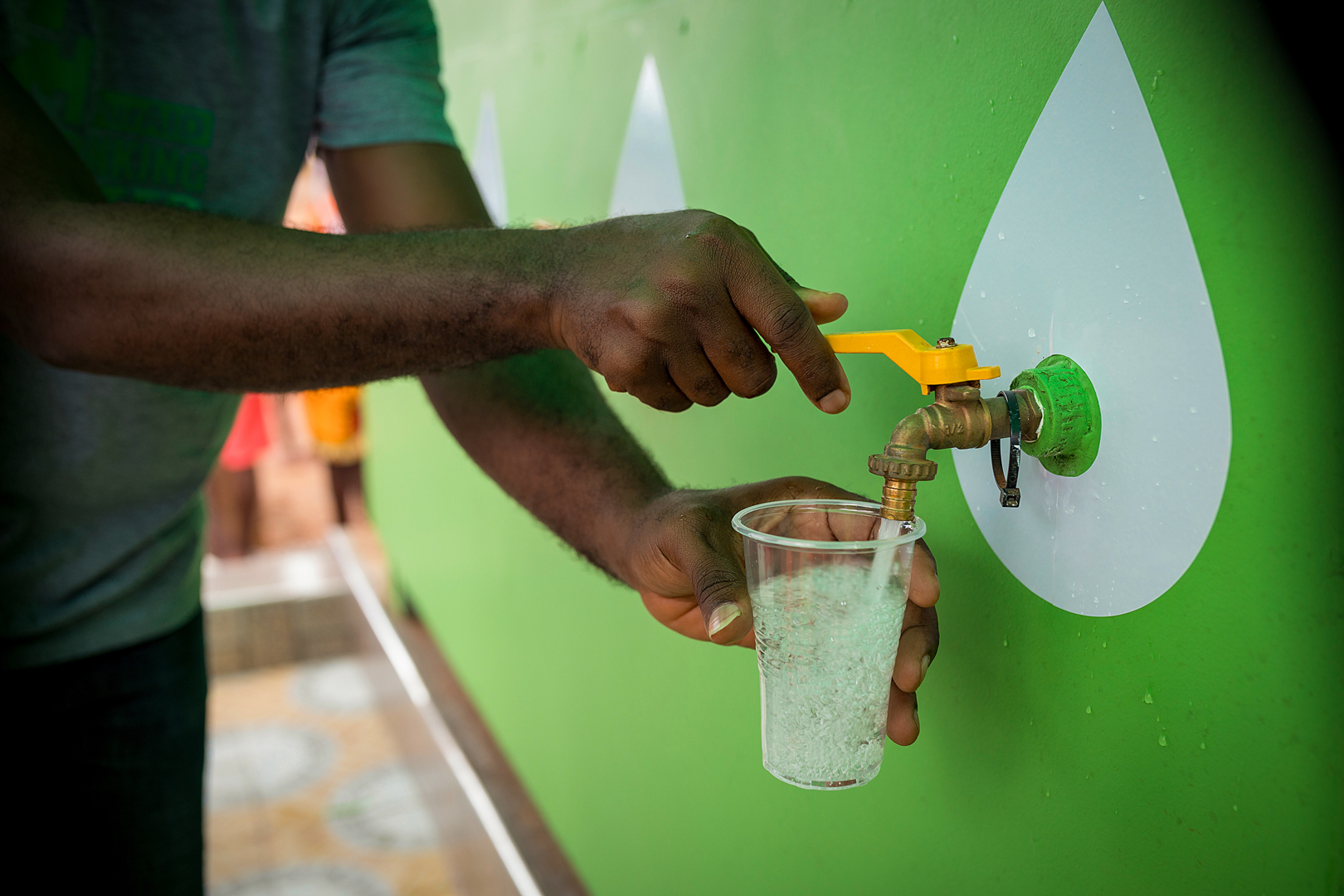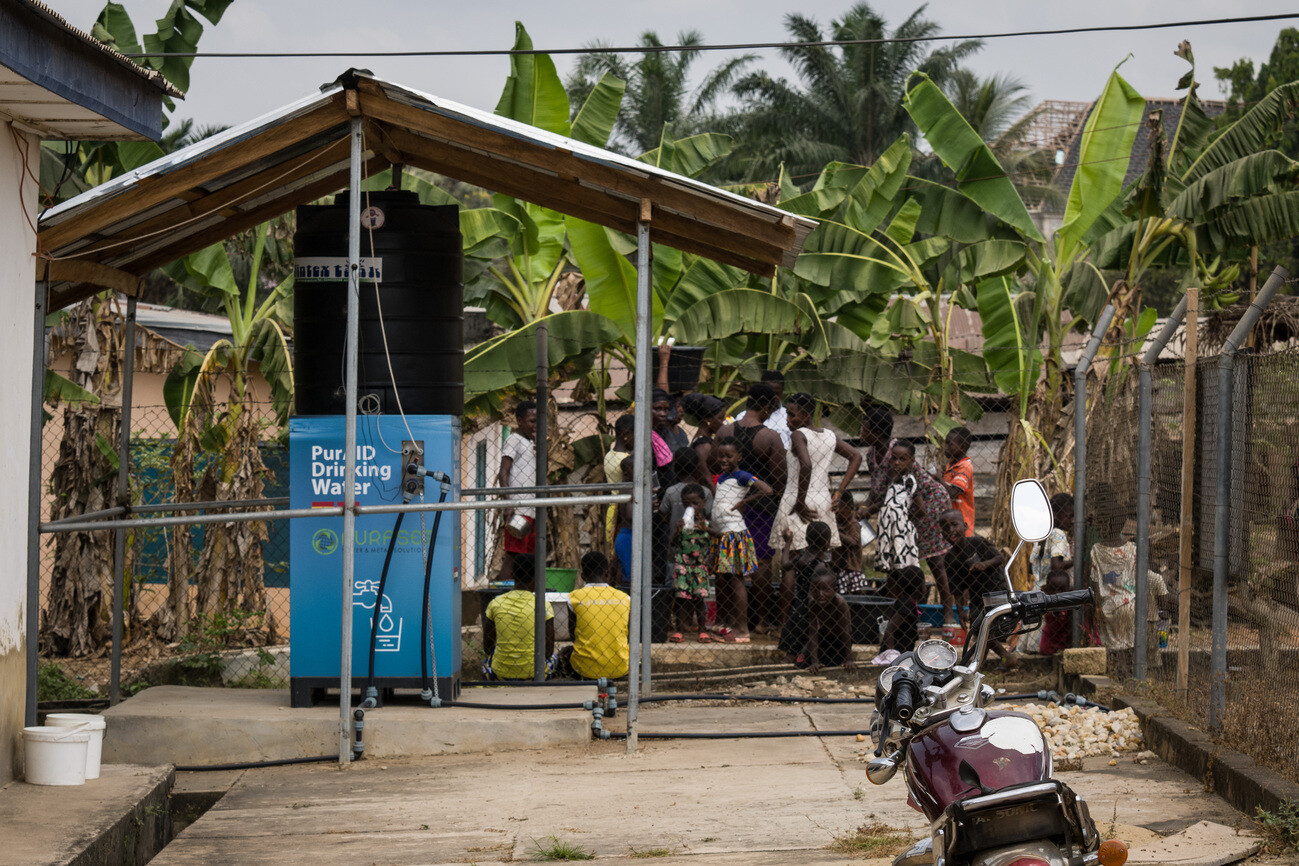Our very first drinking water kiosk in Ghana
Content
In Assin Amoabin, Ghana, a settlement with a population of 2000, there is no piped water supply. The residents get water from the community borehole, but it is unsuitable for drinking. The water has bacteria and visible traces of iron and manganese contamination.
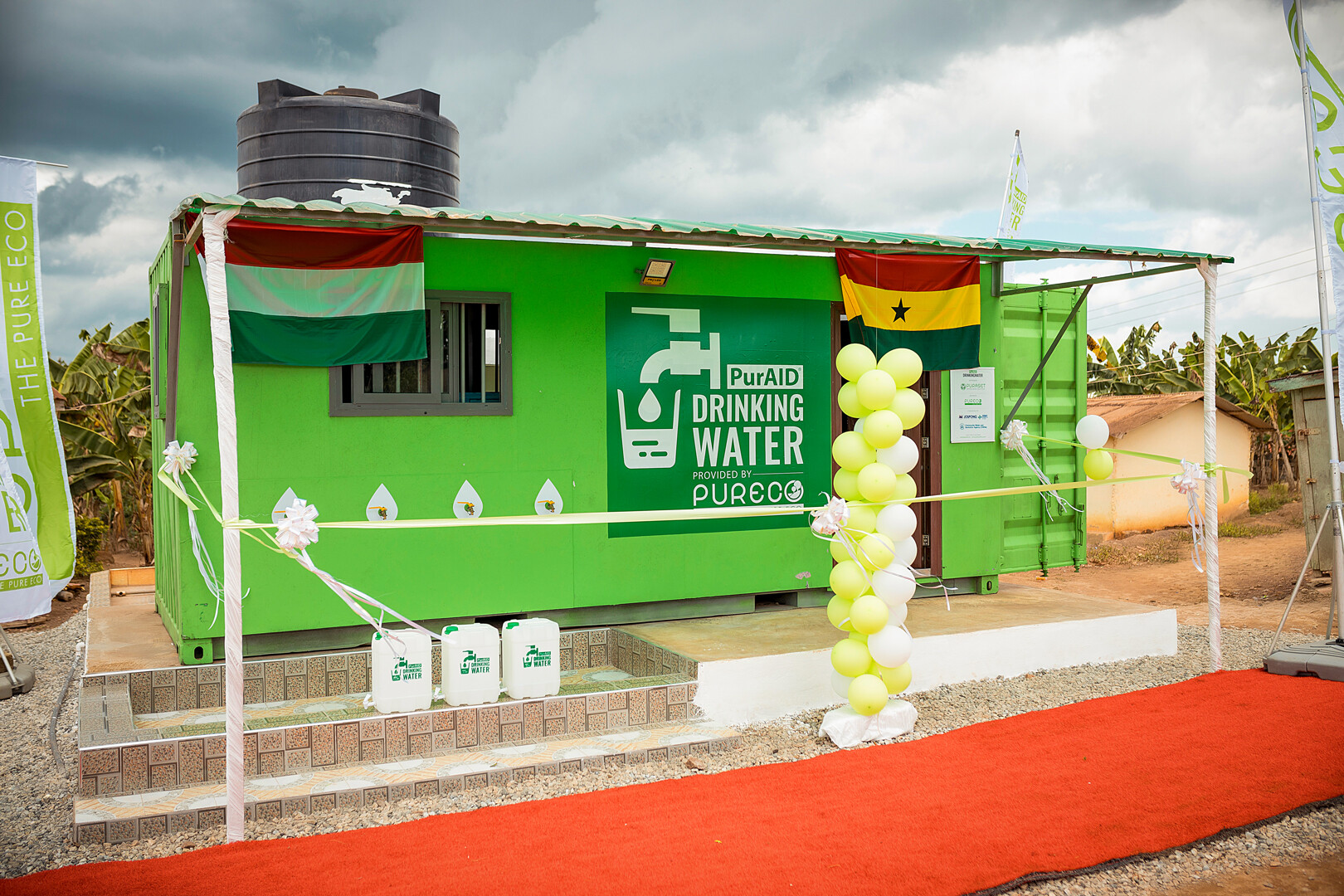
Community members frequently complain of the poor taste and smell of the water and have challenges using water for household activities such as washing clothes because the water does not lather easily with the water.
Therefore, an innovative, cost-effective, and sustainable water solution was needed to ensure the population's right to potable water.
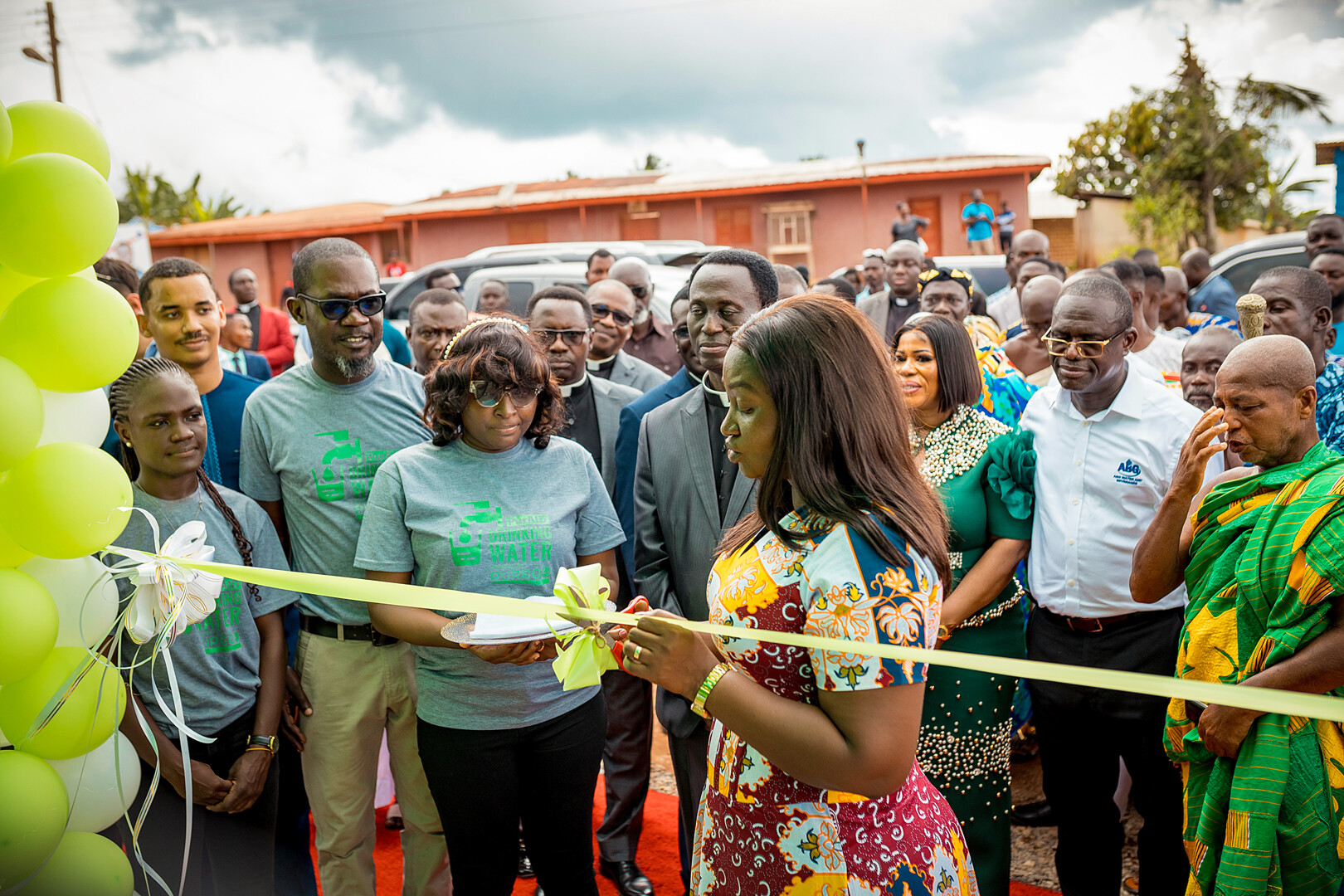
In partnership with the local authorities, we developed a PurAID®-based kiosk system, the PurAID® Independent Drinking Water Provider (IDWP). The very first PurAID®-based IDWP project has been successfully launched in Assin Amoabin, Ghana, with the operation of Pureco Africa making life easier and healthier for thousands of residents of this rural community. The heart of the IDWP is the PurAID® produced by Puraset Ltd. The UN-recognised, modular drinking water treatment technology uses regenerable adsorbents for removing contaminants such as iron, manganese, ammonia, arsenic, fluoride and bacteria from groundwater rendering it safe to drink without removing the essential minerals required in drinking water.
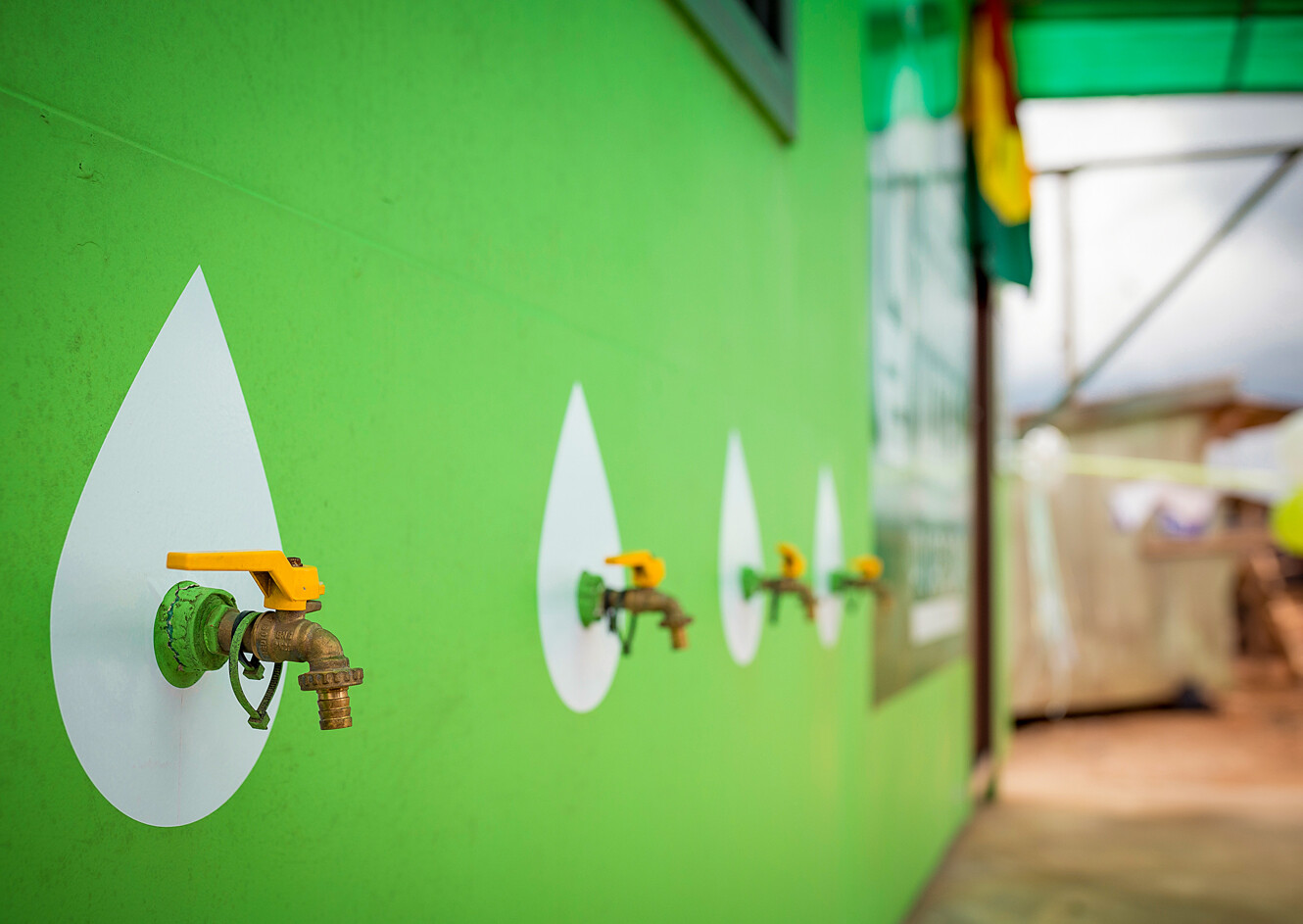
Our healthy drinking water kiosk is easy to install and provides residents with safe drinking water. With the installation of the PurAID® IDWP, it now means that community members will no longer consume harmful, contaminated drinking water.
The drinking water is sold at an affordable price for locals after carefully studying their living standards, so as not to make safe drinking water a further burden for them.
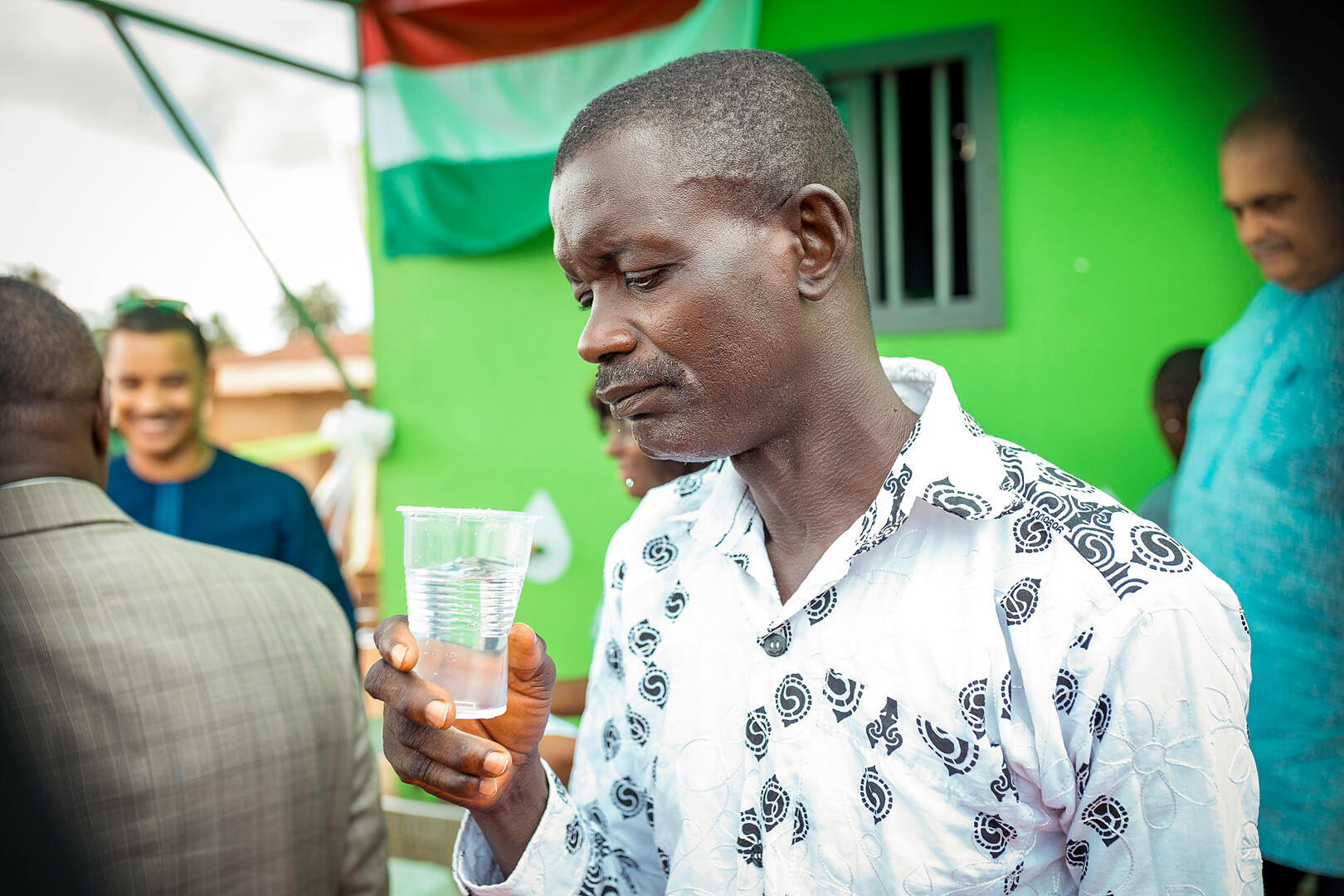
The PurAID® IDWP has significant social and environmental benefits. Apart from the fact that the project encourages the reuse of plastic by providing reusable PurAID® Drinking water 18-litre jerrycans with taps for accessing the water, other benefits include:
- no water loss,
- cleaning is done with environmentally friendly renewable adsorbent materials, so backwash water is non-hazardous and can safely be released into the environment keeping water sources clean,
- local jobs are created,
- access to safe drinking water for children and women.
The introduction and installation of the PurAID® IDWP could not have been possible without the cooperation and support of the Chiefs, Elders and the local community folk of Assin Amoabin. Other partners that have contributed to the success of the Project include the Community Water and Sanitation Agency (CWSA) and the Jospong Group of Companies (JGC), who have been very supportive in the piloting and eventual deployment of the solution.
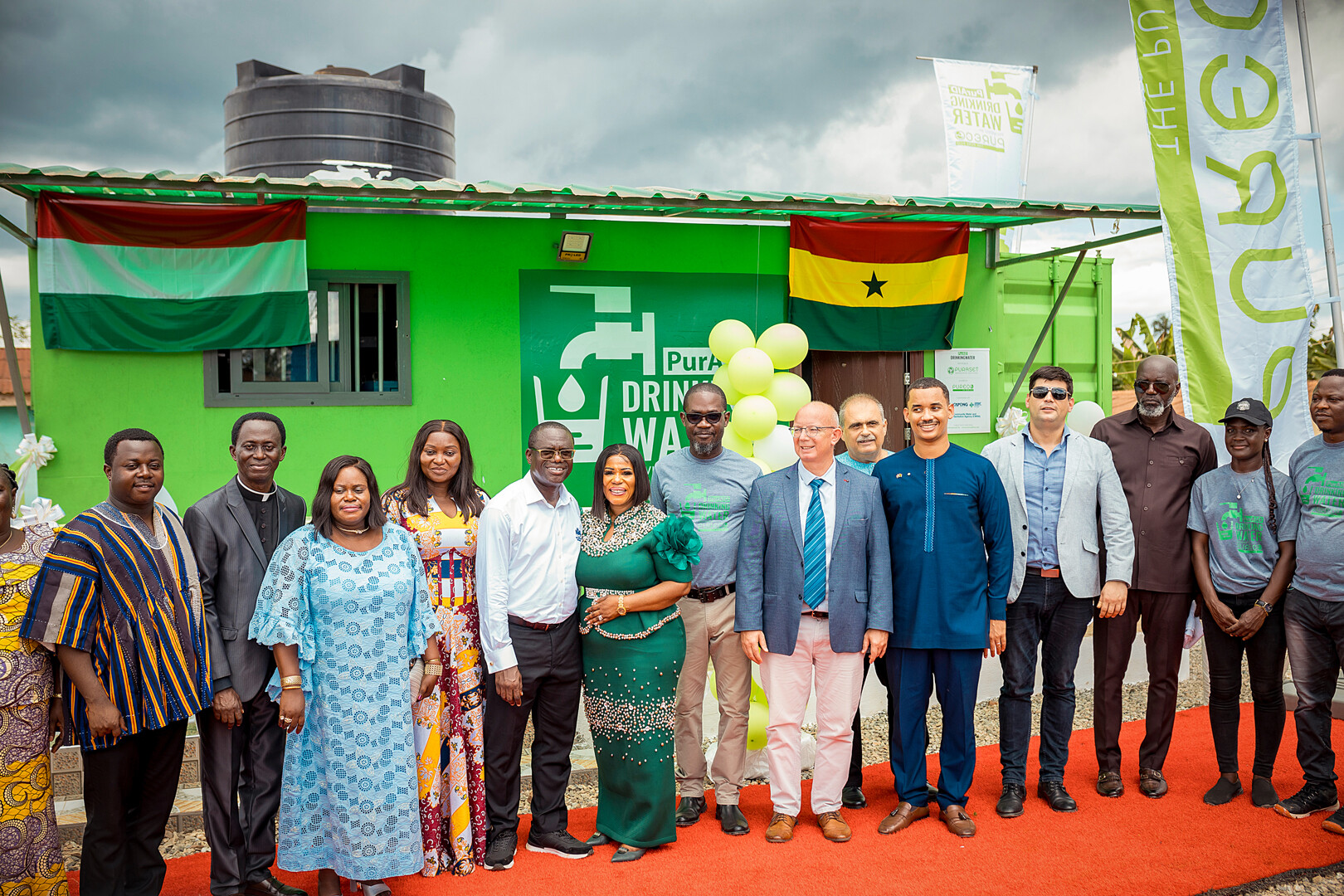
Building on the success of the first IDWP project, we plan to install similar systems in the medium term to provide a sustainable solution for every community needing access to safe drinking water.
PurAID® project in Ghana
Intro
Our first project in Ghana, the trial operation of our PurAID® modular, mobile, pallet-based water purification equipment installed in the settlement of Akim Wenchi, has been successfully completed. With the help of PurAID®, iron and manganese impurities, as well as disease-causing bacteria, are removed from the water of the public wells of the town of 12,000 inhabitants.
Properties
- Subtitle

